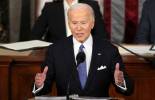‘Richard II,’ ‘The Marvelous Wonderettes’ take stage at Utah Shakespeare Festival


Next week, two very different productions — Shakespeare’s “Richard II” and the nostalgic prom-night musical “The Marvelous Wonderettes” — join the rollicking, Tony-winning “Peter and the Starcatcher” at the Utah Shakespeare Festival in Cedar City.
It’s been 52 years since the festival began by presenting Shakespeare outdoors, under the stars.
But the festival’s fall season owes its existence to an indoor venue: the Randall L. Jones Theatre, which celebrates its 25th anniversary this year.
When the theater first opened in 1989, the notion of watching a play by someone other than Shakespeare, somewhere other than under the stars, struck some festival patrons as outright sacrilege.
“It was a difficult first season, with few people interested in attending any plays held inside,” recalls festival founder Fred Adams — even if those plays included works by such masters as Moliere (“The Imaginary Invalid”) and Tennessee Williams (“The Glass Menagerie”).
A quarter-century later, however, Cedar City audiences are on a first-name basis with “the Randall,” embracing it as an essential part of the festival experience.
A commemorative banner hanging near the Randall ticket office features photos of every play presented there through the years — high-powered dramas (“A Streetcar Named Desire,” “Death of a Salesman”), classic comedies (“The Importance of Being Earnest,” “You Can’t Take It With You”) and musicals (“Man of La Mancha” to “Little Shop of Horrors”).
No wonder “the Randall is hugely significant for us,” says David Ivers, the festival’s co-artistic director — who’s also playing the title role in “Richard II.”
Not only is it “a really beautiful theater and a really beautiful performance venue,” the Randall has “allowed us to be flexible, interpreting and reinterpreting” a wide range of plays, he says. Including those by Shakespeare himself.
Consider “Richard II.” The second of the Bard’s history plays, which the festival is staging in chronological order, it takes place in 1398. On the page, anyway.
On the Randall stage this fall, however, “Richard II” takes place in the Edwardian era, circa 1910, which “helps contextualize it in more contemporary” terms, Ivers says. But “it’s still a period where ceremony and pomp and honor” hold sway.
It’s only the third time the festival has presented “Richard II,” following 1974 and 1993 productions.
R. Scott Phillips, the festival’s executive director, remembers the first, Watergate-era staging — and its portrait of “an ineffectual leader and what happens to a weak leader,” citing the echoes between “Richard II” and embattled President Richard M. Nixon, who resigned that summer.
Shakespeare focuses on Richard II’s final years in power, when his tyrannical actions (and inactions) prompt his exiled cousin Henry Bolingbroke to return to England and seize the throne, launching the Wars of the Roses — and plunging England into almost a century of turmoil. (Coming to the festival next summer: “Henry IV, Part One.”)
Leading the rebellion against Richard: the Duke of Northumberland, played by none other than Ivers’ counterpart, Brian Vaughn, the festival’s other co-artistic director.
Beyond “Richard II’s” political intrigue, the play also shows William Shakespeare “still developing his process as a playwright,” Phillips notes — albeit a playwright capable of creating some of his “most lyrical poetry.”
To Ivers, “Richard II” qualifies as “a masterpiece” and “a thrilling play,” one that’s “action-packed” yet “doesn’t rely on battles to get the political intrigue across.” Of course, he’s a bit biased — “Richard II” is his favorite Shakespeare play, “and has been for over 20 years,” he says, calling it “the ‘Hamlet’ of the histories.”
No such significance accompanies the hoppin’, boppin’ girl-group harmonies of “The Marvelous Wonderettes,” a jukebox musical featuring “It’s My Party,” “Leader of the Pack” and other ’50s and ’60s pop favorites.
“Wonderettes” has enjoyed more than 300 productions — including 1½-year runs off-Broadway and in Los Angeles.
But the Cedar City staging represents a homecoming for writer-director Roger Bean, who has directed four other musicals at the Randall: 1995’s “A Funny Thing Happened on the Way to the Forum,” 1996’s “The Mikado,” 1999’s “Damn Yankees” and the 2007 world premiere of “Lend Me a Tenor: The Musical.”
And while “Wonderettes” may be a jukebox musical, “it’s not a songbook, ‘and-then-I-wrote’ jukebox musical,” Bean explains. “I like to figure out a plot device that’s indicative of an era or a style of music and interweave a new story.”
In this case, it’s the tale of four 1950s song leaders who step up to sing at their high school prom — and, a decade later, at their 10-year reunion.
“Wonderettes” premiered as a one-act at Milwaukee Repertory Theatre (where Vaughn spent 14 seasons) and later expanded to two acts, with Bean experiencing “kind of a discovery process” along the way.
That process included choosing appropriate songs from “all this innocent music from an earlier time” — and figuring out “a way the story of the song could be used in a plot,” he explains. “A lot of those songs are little one-acts in themselves.”
Audiences will know many of the songs, but the show also features such relative obscurities as “That’s When the Tears Start” (a minor hit for the Blossoms, with Darlene Love singing lead) and “Needle in a Haystack” (recorded by Motown’s very own Velvelettes).
“It’s such a great piece of nostalgia,” Bean says of the “Wonderettes,” noting how the music “connects the brain and the heart,” thereby enabling audiences to remember “a special feeling and a special place.”
That phrase also describes the connection forged between USF productions, and audiences, during the Randall’s first 25 years.
Festival officials initially considered some sort of formal recognition for the Randall anniversary, Phillips notes.
Ultimately, however, they decided to celebrate by doing what they always do: put on a show. Or three.
“I think the non-Shakespeare plays inform the Shakespeare, and vice versa,” says Ivers, who cites this fall’s trio of “vastly different plays” as meeting the festival’s primary goal: “to enlighten, educate and laugh at the human condition.”
In short, he adds, “we’re looking for really good stories — whether they’re 400 years old or just hot off the press.”
Contact reporter Carol Cling at ccling@reviewjournal.com or 702-383-0272.
Preview
52nd annual Utah Shakespeare Festival
In repertory through Oct. 19: “Peter and the Starcatcher” (now playing), “The Marvelous Wonderettes” (opens Sept. 18) and “Richard II” (opens Sept. 19)
Randall L. Jones Theatre, 300 W. Center St., Cedar City (2½ hours northeast of Las Vegas on Interstate 15)
$31-$72 (800-752-9849; www.bard.org)


















